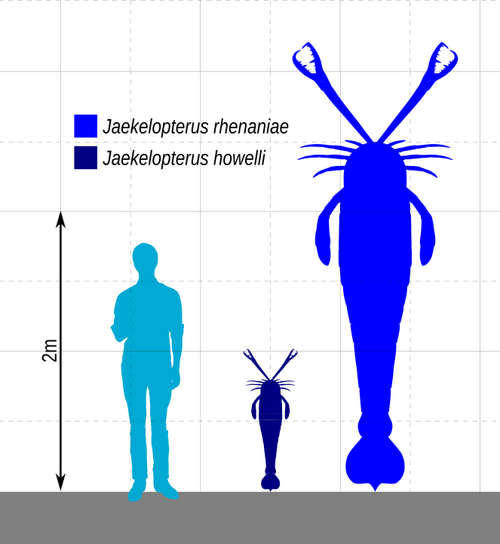I'm surprised that none of Nigel Kneale's aliens from the four Quatermass series have cropped up in this thread yet.
The Quatermass Experiment (1953)
A British spaceship (designed and built by Dr Bernard Quatermass, launched from Woomera) crash lands near London on its return to earth, only one of the astronauts aboard is left and barely alive. The other two have vanished. An alien lifeform had infiltrated the ship, it can absorb plant and animal cells for energy to grow and mutate and somehow stores the consciousness of its victims. The surviving astronaut Victor Caroon slowly mutates into a plant-like alien form, should it spore then it could absorb all living matter on earth. It's killed in Westminster Abbey - in the original BBC TV series Quatermass convinces the consciousness of the three crewmen inside the creature to turn against it and destroy it; in the 1955 Hammer film version (The Quatermass Xperiment) its killed with the electrical output of Battersea power station to burn it alive whilst it hangs around on some scaffolding.
Quatermass II (1955)
Dr Bernard Quatermass is now attempting to get a Moon base built, but instead comes up against Whitehall red tape and his prototype nuclear-powered rocket blows up on the pad at Woomera. He becomes drawn into strange events as strange small meteorites land across Northern Britain. When picked up they spray ammonia gas and a distinctive mark appears on the victim. Again the alien lifeform is an infiltrator, taking over its human host by some form of collective consciousness that binds all the aliens. The alien uses the hollow meteorite as a protective shell, the ammonia inside is their usual atmospheric environment (Quatermass deduces they come from a Saturnian moon) and they die when exposed to Earth's atmosphere but not before they take over the host's mind. The meteorites are launched from a larger asteroid which orbits earth every 14 hours.
It turns out that many government members have been taken over by the aliens and have the mark. Under the alien consciousness they are building a "synthetic food plants" (it is reported others have been built around the world implying a global invasion) but which are actually producing ammonia, hydrogen, nitrogen and methane in giant domes as biospheres where the collected meteorites are emptied safely, growing into massive creatures. Quatermass succeeds in destroying the dome, killing the alien inside on exposure to oxygen and then launches his remaining unsafe nuclear rocket to destroy the asteroid which frees all the infiltrated people, presumably having destroyed the centre of the collective alien consciousness.
Quatermass and the Pit (1958)
During excavations in London a prehistoric humanoid is discovered dated, as 5 million years old. Then an unexploded bomb is found, which actually turns out to be a crashed spaceship and more humanoids are discovered. Dr Quatermass gets involved and dead 3-legged insectoid aliens are discovered in the spaceship. This is linked to supernatural events which occur (and which have always occurred in the area of the spaceship whenever the ground is disturbed). It turns out that the insects are Martians and that they had taken apes and primitive pre-humans and genetically altered them to give them abilities such as telepathy, telekinesis and other psychic powers, before returning them to Earth in an attempt to reshape man into their own minds and abilities as life on Mars dies as its climate changes to ensure their race lives on in some form but they become extinct before completing their work but some imprints remain in humans, supernatural beliefs and the devil being a folk remembering of the aliens.
An accidental discharge of electricity into the spaceship brings it to life, rekindling the dormant psychic powers in humans leading to killings of those without the alien genes. Eventually a mass of iron grounded to wet earth is thrust into the mass of energy which was the spaceship (Quatermass remembers that water and iron defeats the devil), which discharges and breaks the psychic powers.
Quatermass (1979)
We never see the alien in this series. The danger is an alien spacecraft/satellite which harvests crowds of young humans for human protein for an alien civilisation. Beacons were buried into the earth millions of years ago, which can detect the noise, vibration and scent of masses of humans, which activates an energy beam which vaporises the humans and takes the protein. These beacons lay underneath stone circles, megaliths and other prehistoric temple structures around the world, which were built by humans as markers of the dangers (Quatermass deduces that what are thousands of years on Earth might only be seconds for whatever alien life the beam is operated by). Not only that but the spaceship has the ability to psychically affect the young, making them angry and violent but anti-technology and anti-civilisation (think hippies crossed with punks) who then gather at the hidden beacons and are harvested. Quatermass sets up a dummy gathering, using synthetic noise and scent of a massive gathering of youths to lure the beam, exploding a 35kT nuclear bomb under it - not to destroy it, but to send an energy wave that makes the spaceship stop its task by alerting it to some kind of danger to warn it off.
So four very different aliens, lots of psychic stuff but killing them is usually elemental stuff - electricity, iron, water and oxygen.






